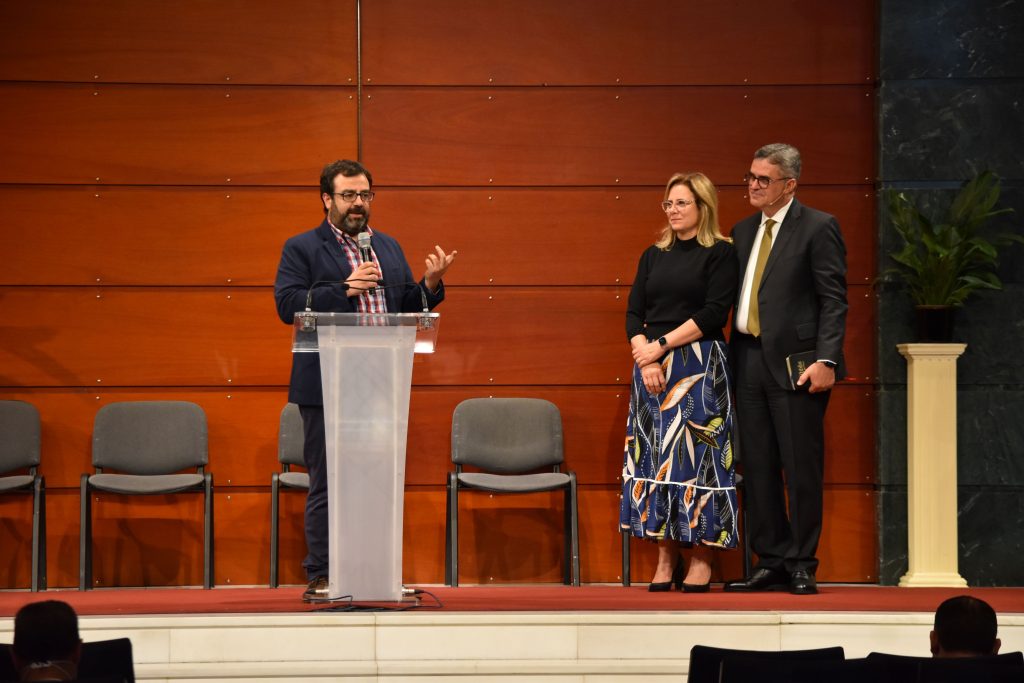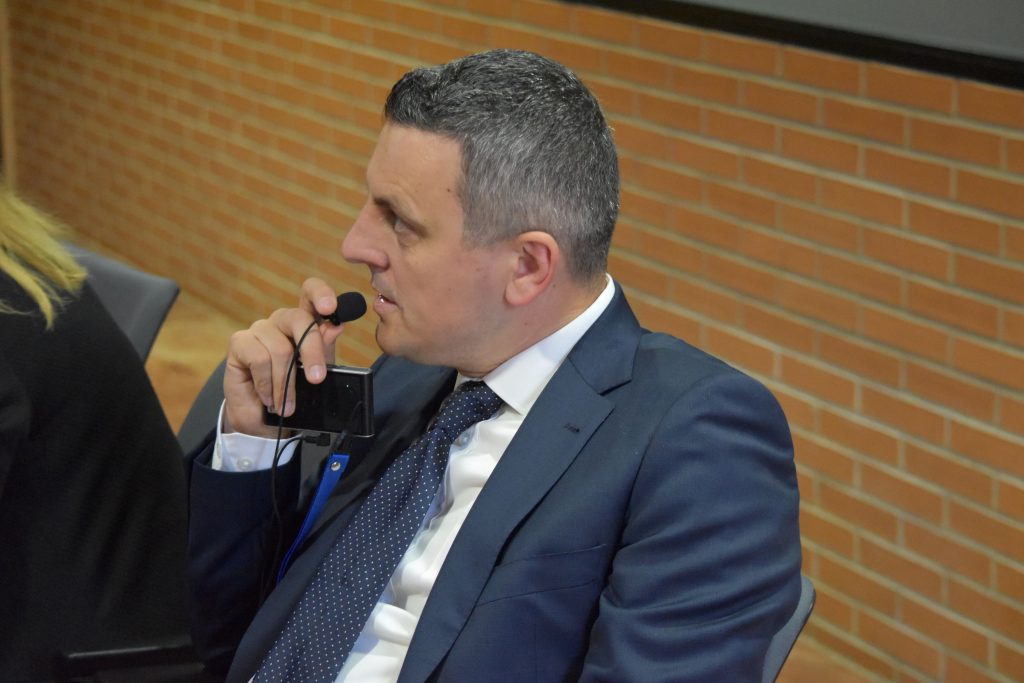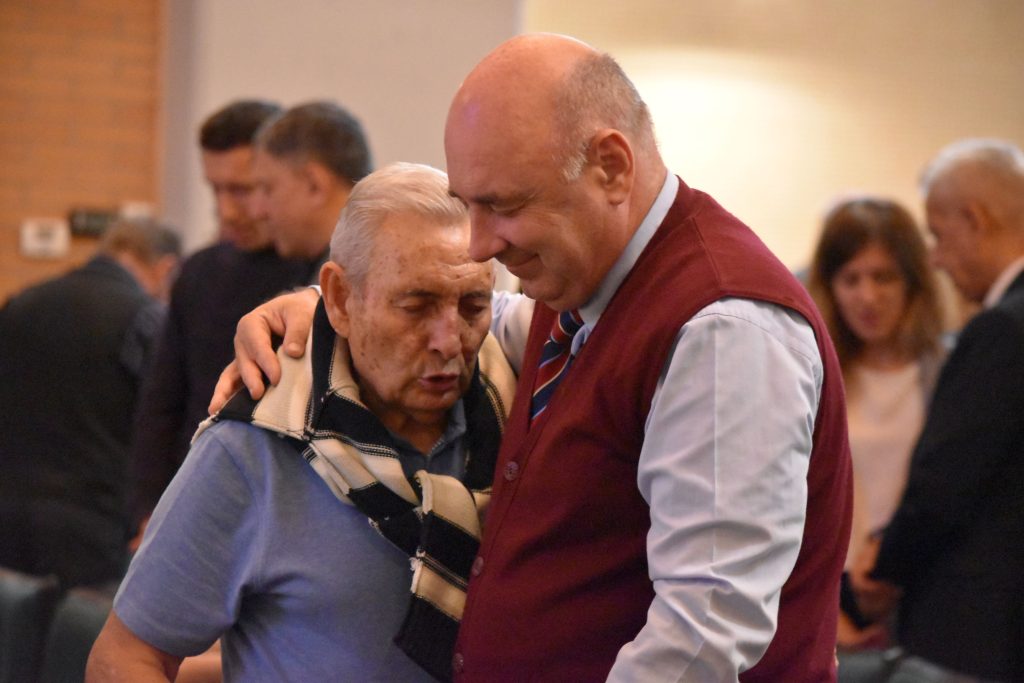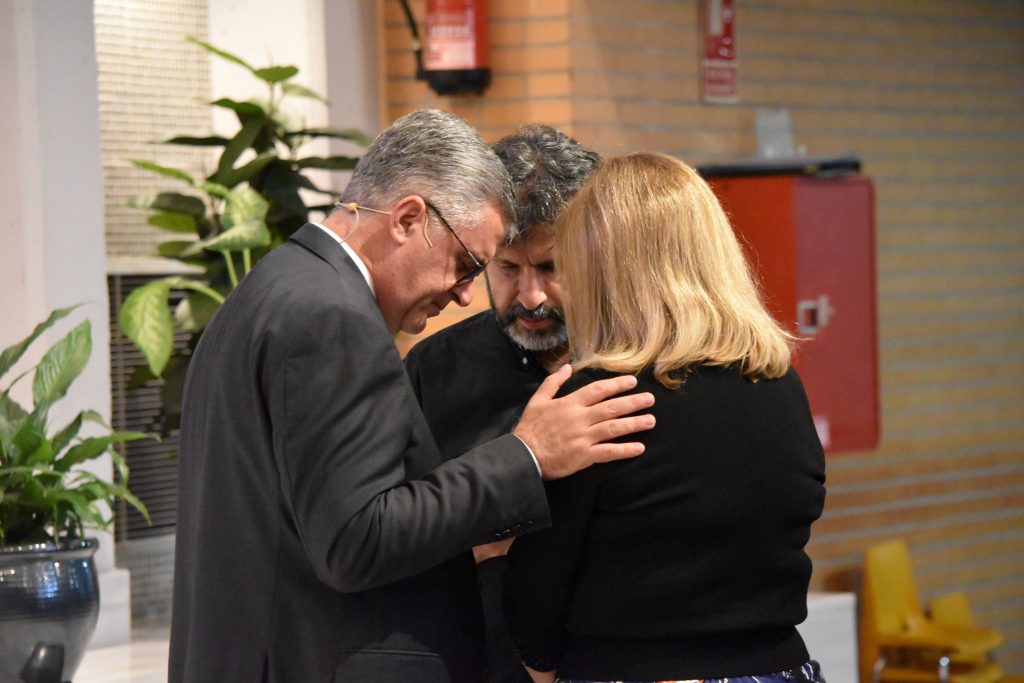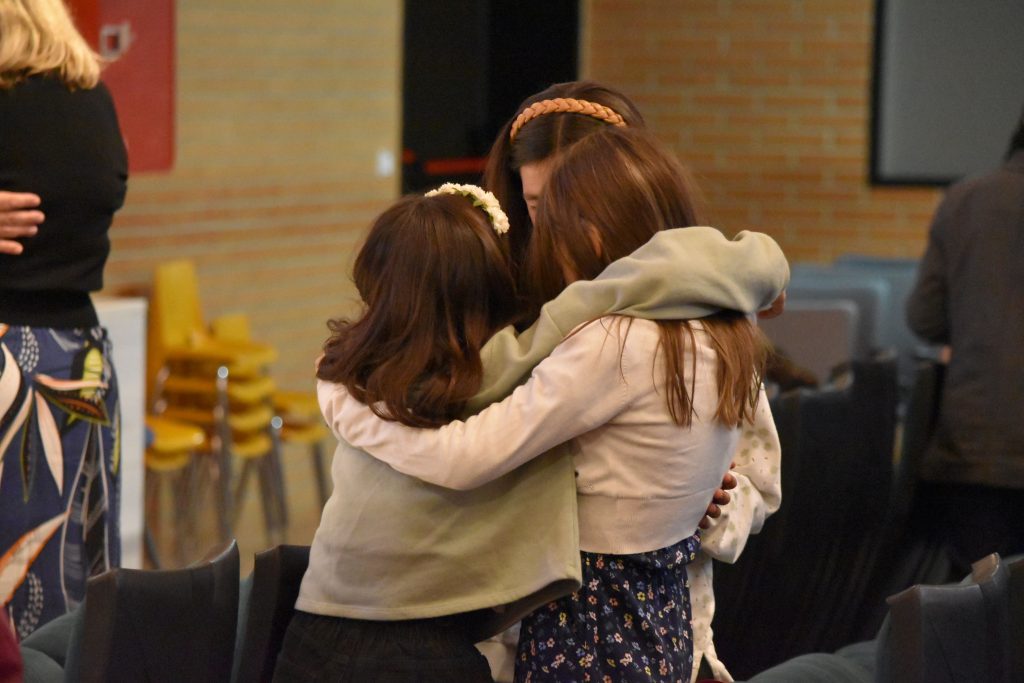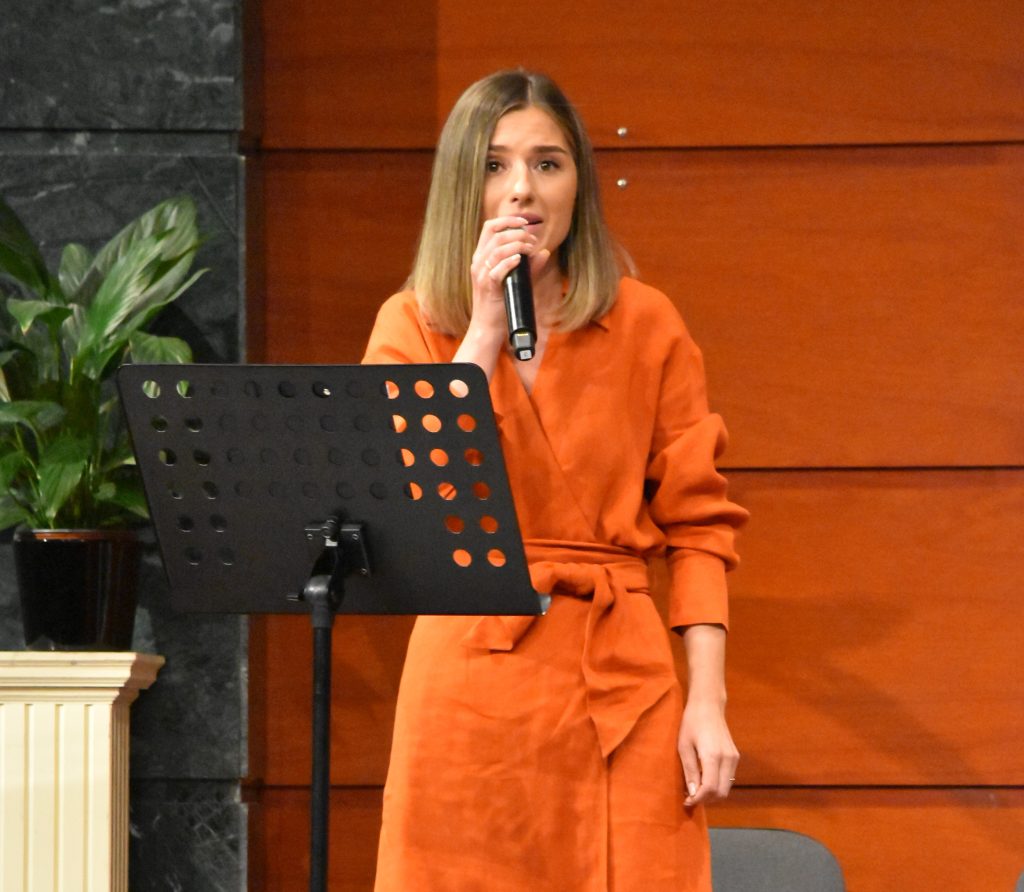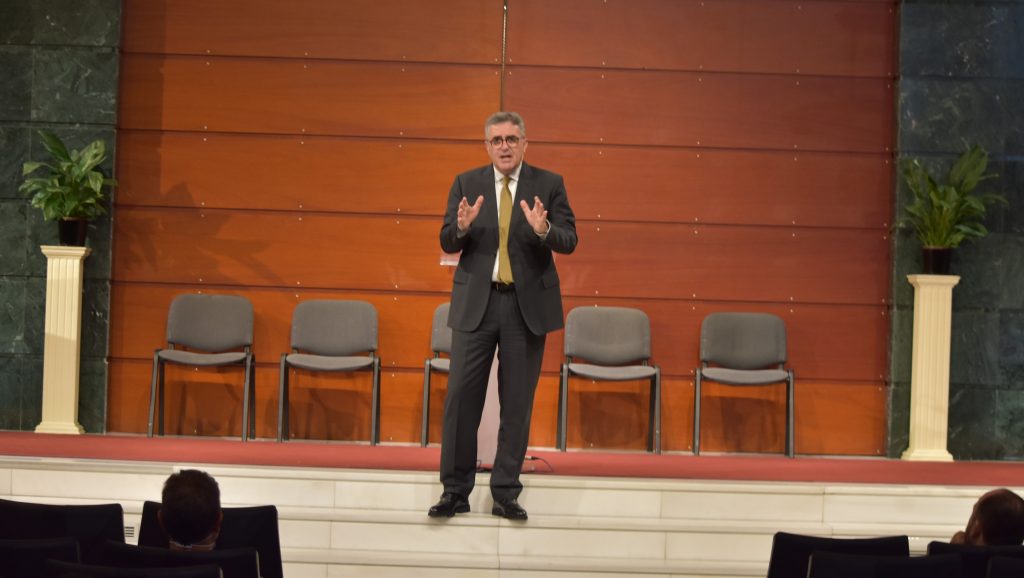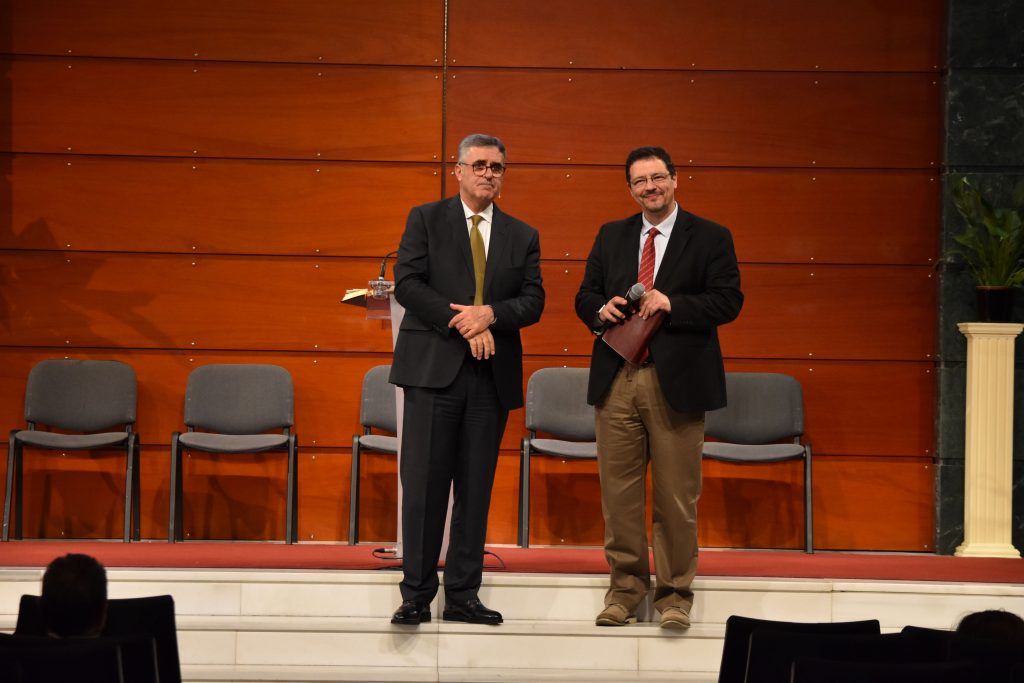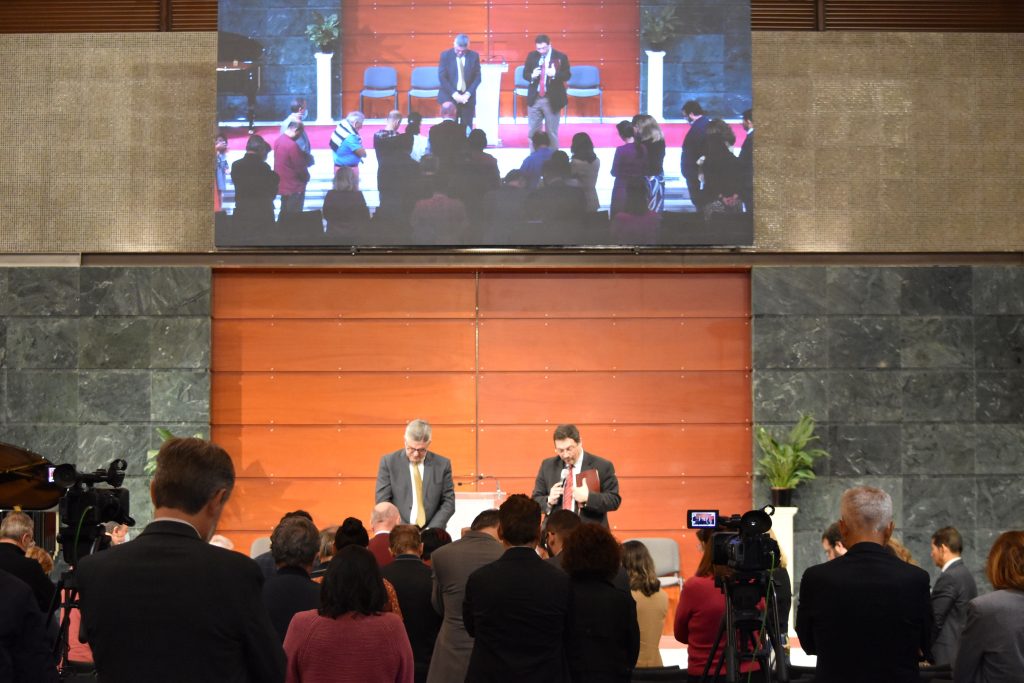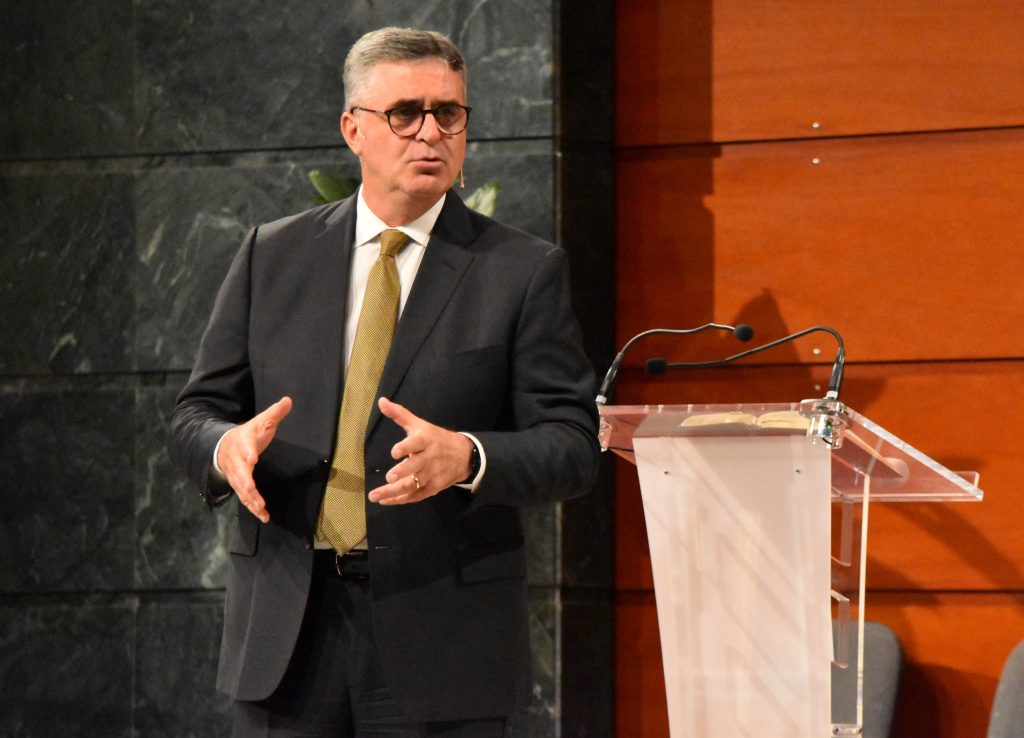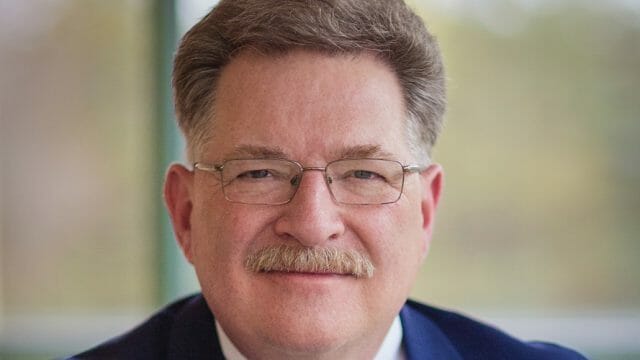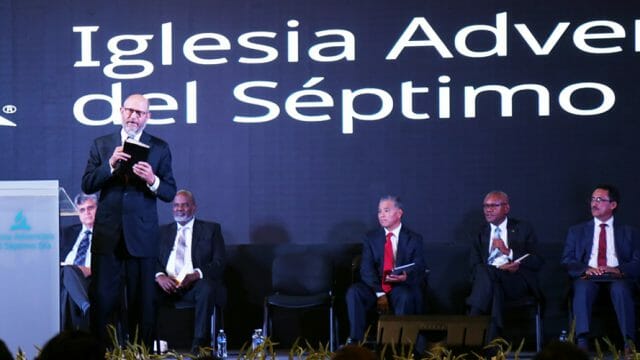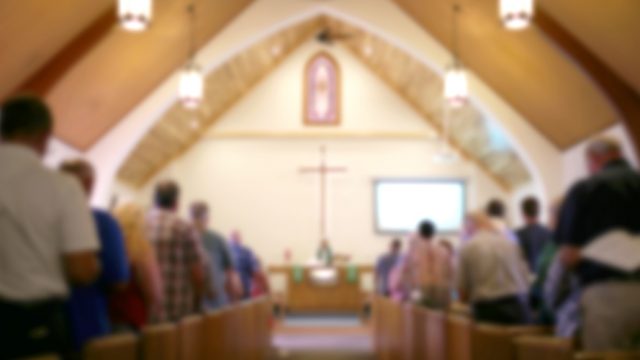Erton Köhler reminds local church members that Seventh-day Adventists are a family.
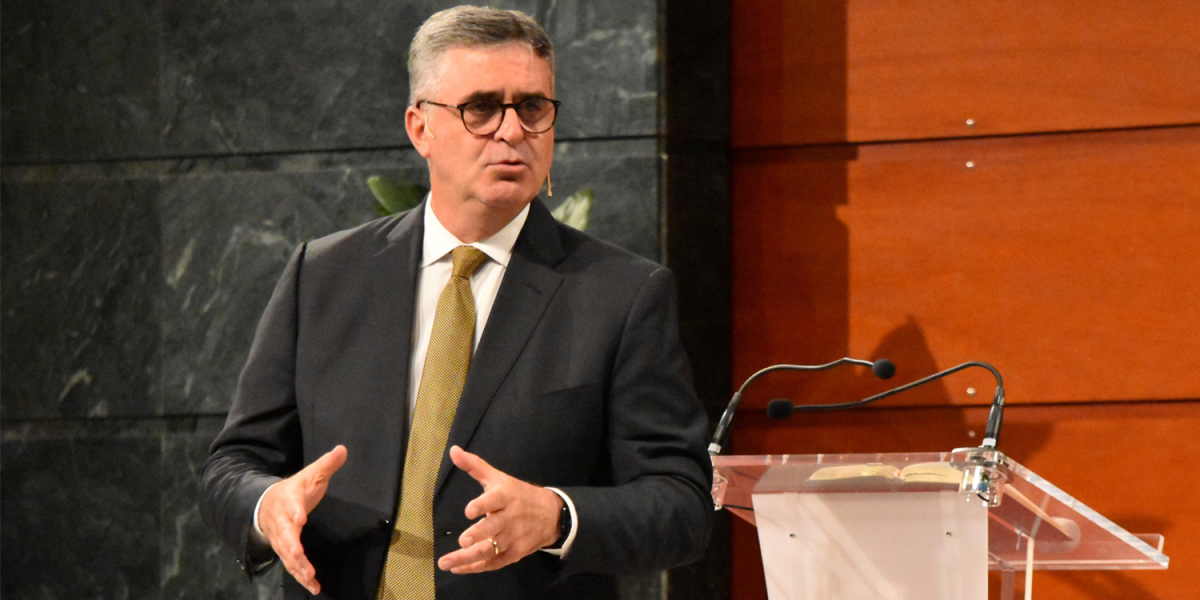
Regions of the Seventh-day Adventist Church around the world should focus on doing mission across their territories, but at the same time, start focusing on challenging spots beyond their borders. It was the key thought of the message General Conference secretary Erton Köhler delivered during his visit to the Emaus and Ebenezer Seventh-day Adventist Church in Madrid, Spain, May 22.
“One hundred and twenty years ago, an American missionary arrived in Spain to spread the message,” Köhler told church members, who had gathered at the church or were following the livestream. “Do you know what it means? That someone had to come from outside to do the work.”
Then Köhler drove his point home. “My question is, when [are Adventists in] Spain going to pay their debt to the world? When will the Adventist Church in Spain send Spanish pastors to other places with no Adventist presence, so those pastors might do there what other missionaries did in Spain when there was no Adventist work yet established?”
Köhler’s message left food for thought for Adventist leaders in Spain, a country with a population of more than 48 million but less than 18,000 baptized Adventist members. In addition to these local challenges, Köhler appealed to church leaders and members to start looking to other regions where challenges are even greater and commit to supporting the Adventist mission work there.
One Family Working Together
The synergy of the church is based on the fact that, no matter where we come from, as Seventh-day Adventists, we are part of the same body, Köhler emphasized. “More than a church, we are a family,” he said. “A family has a heart and the same Father. And it is a family [that] is well represented here in Europe.”
Referencing the unprecedented Christ for Europe initiative, which has opened more than 1,500 avenues for evangelism and outreach across the continent in 2023, Köhler said that “all of us leaders are involved in helping Europe tackle its challenges, reach[ing] out [to] searching hearts, open[ing] God’s Word, and carry[ing] hope. I can say very confidently that right now, Europe has become the heart of the Seventh-day Adventist Church around the world.”
Köhler added that he believes there are many searching hearts across Europe. “When we open the Bible with a positive message, with a message of hope, there are many hearts eager to listen…. God is making miracles as the message is preached and touches many hearts.”
A Mixed-Feelings Celebration
The May 19-22 weekend was also important for the Adventist Church in other respects. May 21 marked 160 years since the Adventist Church was officially organized in 1863.
“It is a complicated celebration,” Köhler acknowledged, because as the church body remembers how God has led, it is impossible to avoid reflecting on all that still needs to be done. Köhler specifically mentioned 43 cities of the world with a population of over 1 million people and no baptized Adventists, and 47 others where there are 10 or fewer Adventist members. “If we are still on this earth, it’s because we still have something to do,” he said.
Against that background, what are we supposed to remember and celebrate? Köhler asked, before answering, “We can’t celebrate [anything] other than a renewal of our commitment to mission, because we still have a lot to accomplish.”
Mission Refocus
Köhler also referenced Mission Refocus, a recent initiative of the Adventist Church to integrate every church office and department around the world to focus on mission, especially where the needs are the greatest.
“Here, we might have a lot to do but in other places, there’s no mission work established,” he emphasized. “We must take care of our home places, but we must also move to assist those places where no mission is yet present.”
He explained that the General Conference has requested every world church region to start putting funds aside to send their own missionaries — pastors, health workers, and educators — to regions outside their borders where mission might be more challenging. “We are asking them to send missionaries paid by their funds to launch the Adventist work in places where there’s not a single church member,” Köhler said.
Helping Others Is a Blessing
Köhler said that this refocus on mission as something that transcends our home territories is based on a conviction. “Jesus will not come back only for those countries with an established Adventist presence,” he said. “Jesus will not come back only for those nations where the Adventist Church is growing leaps and bounds. He will come back for everyone.”
It means, according to Köhler, that we must move to do something for those places where needs are the greatest, because Jesus will return when everyone has had the opportunity to listen to God’s message. “What we most want is to prepare the whole world for Jesus’ second coming.”
At the same time, Köhler said that supporting our local work and the work abroad shouldn’t be opposites but rather complementary.
“I know there’s a lot to do [in Spain],” he said. “But I have learned one thing: When we help the mission field abroad, God sends resources our way so that the work of the church also moves forward in our own territory…. The key is to move forward in faith.”
Köhler then challenged local church leaders and members once more.
“Where are the missionaries from Spain that will travel to establish the Adventist work where there’s nothing yet? Where are they?”


